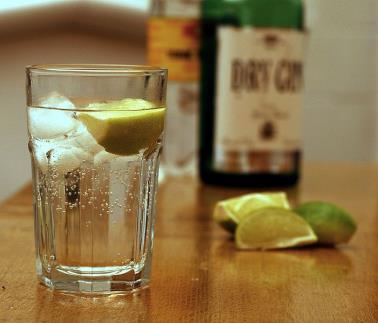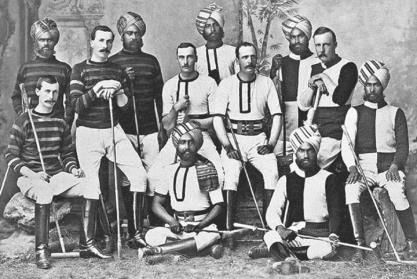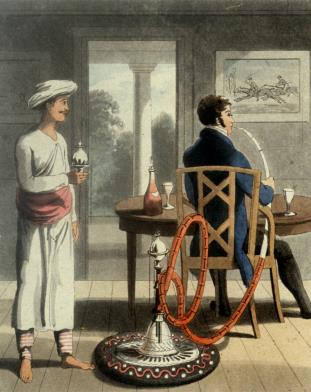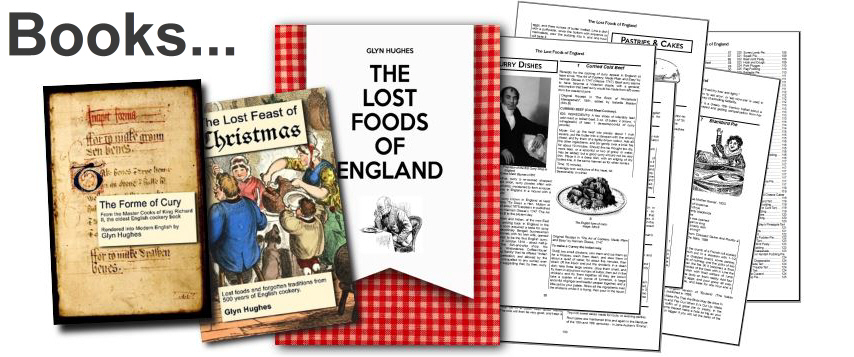

|
 Typically, 1 part gin to 2 or three parts Indian Tonic Water with ice and slice of lemon or lime.  Gin and Tonic, with Ingredients Image: NotFromUtrecht Lore has it that G+T originated in the army of the British East India Company as the only way to get soldiers to consume limes (for the prevention of scurvy) and quinine (to prevent malaria), though we've never been able to find any actual evidence for that. It is known from references back to the middle of the 19th Century, though as late as 1883 Hugh Wilkinson in his 'Sunny lands and seas: a voyage in the SS. 'Ceylon'' had to explain what a 'gin tonic' was.  G+T has a certain association with the game of polo in the India of the Raj. Image: Unknown Definitively known by this name only since a reference in the article 'A Morning With a Bobbery Pack' reproduced in several newspapers and magazines from 1882; 'We were drinking gin and tonic under the old tree on the Calcutta maidan, after a hard fought game at polo.." Amazingly, the actual term 'Gin and Tonic' doesn't seem to turn up in fiction before 'Right Ho, Jeeves' by PG Wodehouse in 1922, though 'Gin and Bitters' is known back at least to an article in 'The Reading Mercury' on Monday 07 August 1780 (p3); "The Captain told me I was welcome on board, and asked me if would have a glass of gin and bitters?" Winston Churchill is reputed to have said, "The gin and tonic has saved more Englishmen's lives, and minds, than all the doctors in the Empire."   |
|
MORE FROM Foods of England... Cookbooks ● Diary ● Index ● Magic Menu ● Random ● Really English? ● Timeline ● Donate ● English Service ● Food Map of England ● Lost Foods ● Accompaniments ● Biscuits ● Breads ● Cakes and Scones ● Cheeses ● Classic Meals ● Curry Dishes ● Dairy ● Drinks ● Egg Dishes ● Fish ● Fruit ● Fruits & Vegetables ● Game & Offal ● Meat & Meat Dishes ● Pastries and Pies ● Pot Meals ● Poultry ● Preserves & Jams ● Puddings & Sweets ● Sauces and Spicery ● Sausages ● Scones ● Soups ● Sweets and Toffee ● About ... ● Bookshop ● Email: editor@foodsofengland.co.uk COPYRIGHT and ALL RIGHTS RESERVED: © Glyn Hughes 2022 BUILT WITH WHIMBERRY |